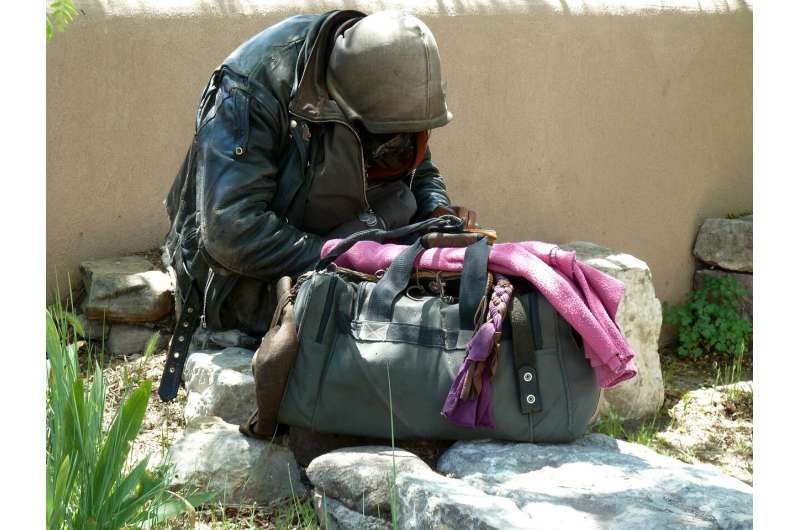This article has been reviewed according to Science X's editorial process and policies. Editors have highlighted the following attributes while ensuring the content's credibility:
fact-checked
trusted source
proofread
Basic monthly income trial shows promise with significant reduction in homelessness

Researchers at the Center for Homelessness, Housing, and Health Equity Research at the University of Southern California released an interim report on the first six months of a randomized controlled trial to study the impact of a basic income and social support intervention for 103 individuals experiencing homelessness in Los Angeles County and the San Francisco Bay Area.
Two key findings so far are that participants in the Miracle Money study who received $750 per month were less likely to remain unsheltered and closer to being able to meet all of their basic needs, compared with those who access usual services available to the homeless population.
Delivered through the nonprofit organization Miracle Messages, which helps people experiencing homelessness rebuild their social support systems and financial security, the Miracle Money study is an expansion of a previous informal pilot program conducted by Miracle Messages that successfully helped participants exit homelessness and meet their basic needs.
Led by Ben Henwood, the Frances L. and Albert G. Feldman Professor of Social Policy and Health at the USC Suzanne Dworak-Peck School of Social Work and director of the Center for Homelessness, Housing, and Health Equity Research, the one-year Miracle Money study was designed to determine if the results from the previous pilot program would hold for a significantly larger sample size measured against a control group.
"One of the aims is to scientifically examine the impact that reducing financial and relational poverty can have on creating long-term solutions to homelessness," Henwood said. "People have different needs, and we're empowering them to focus on what is going to help them individually."
The report provides a breakdown of findings at the six-month follow-up with the initial 69 Miracle Money participants who received monthly income, including how they spent the money received, and a statistically significant change in the proportion of time spent unsheltered in the past month, decreasing from 30% at the start of the trial to under 12% at the halfway point of the trial.
It also compares how participants who have received at least six monthly payments are doing versus 86 people in the control group who are accessing other homeless services.
"Poverty is poverty, but relational poverty is also poverty," said Kevin F. Adler, founder and CEO of Miracle Messages. "A unique aspect of Miracle Money is that in addition to addressing financial insecurity through the monthly payments, it also focuses on the lack of connection and 'otherizing' that people experiencing homelessness often face, which makes exiting homelessness all the more difficult."
Miracle Money participants who receive guaranteed income payments are paired with a community volunteer "phone buddy" who provides social support through weekly phone calls and text messages. This component of the study allows for the examination of a variety of physical and social factors related to experiencing homelessness in addition to housing insecurity.
More information: Interim report: Miracle money California
Provided by University of Southern California





















